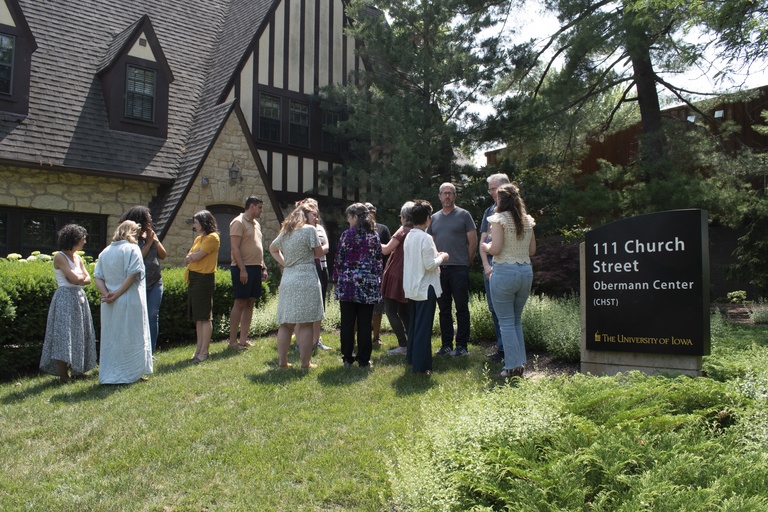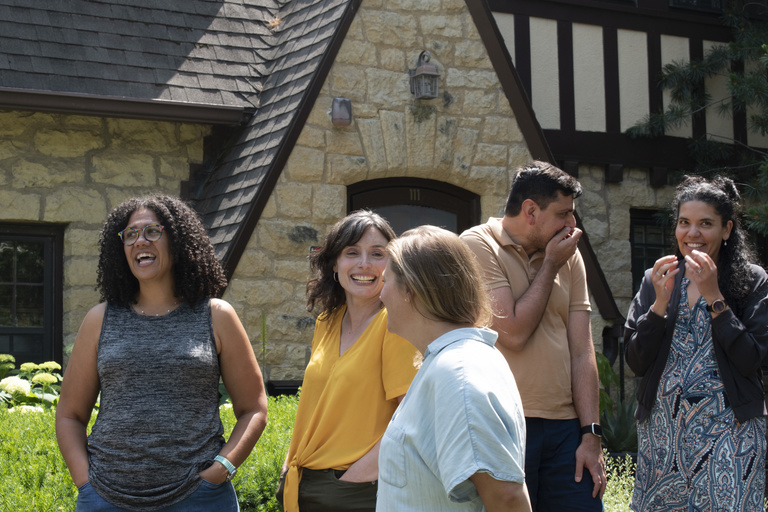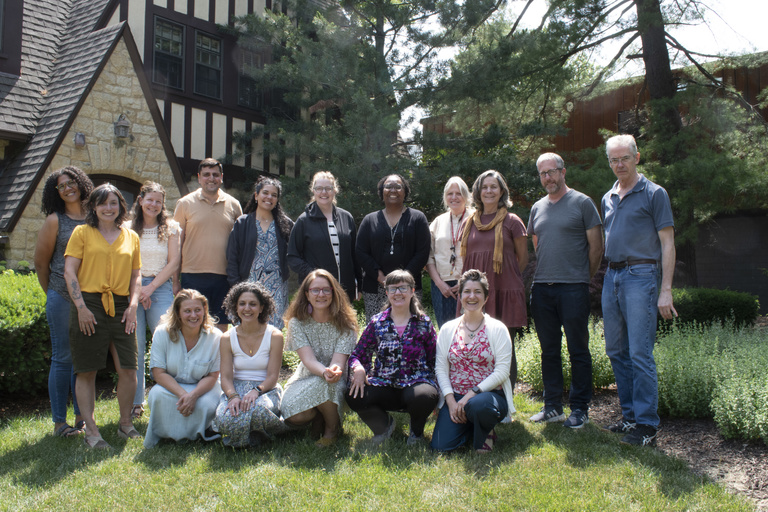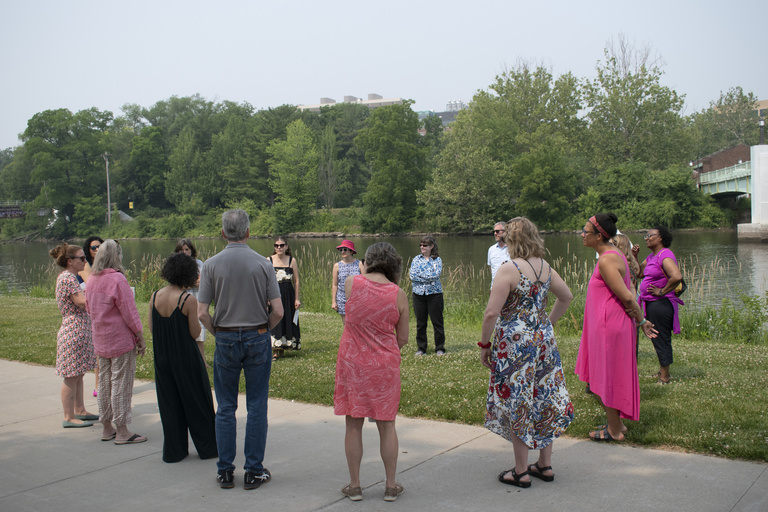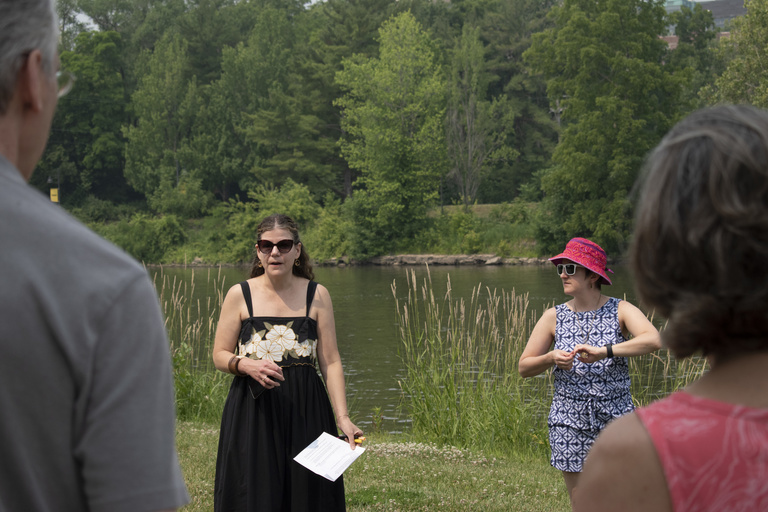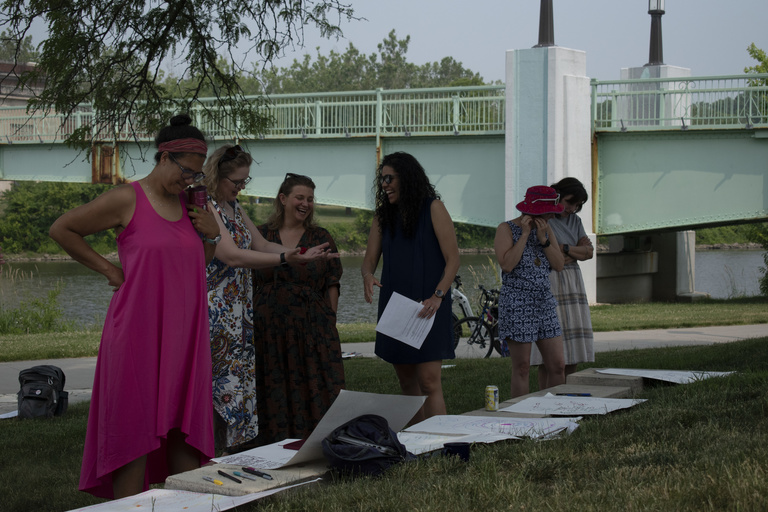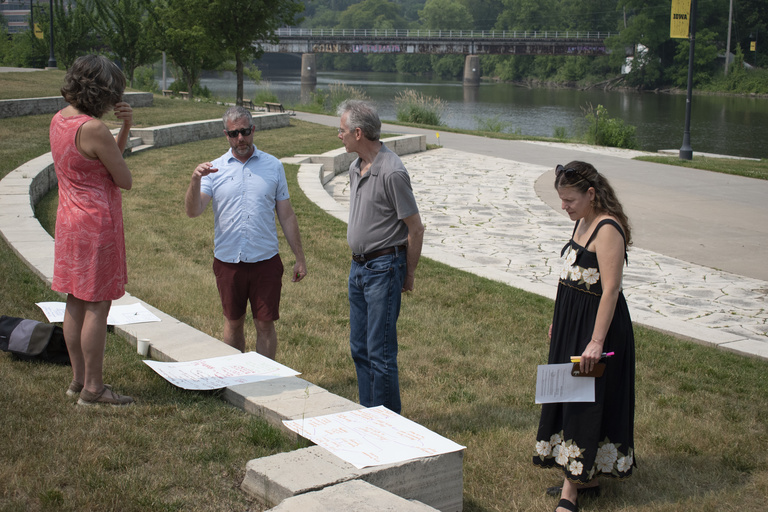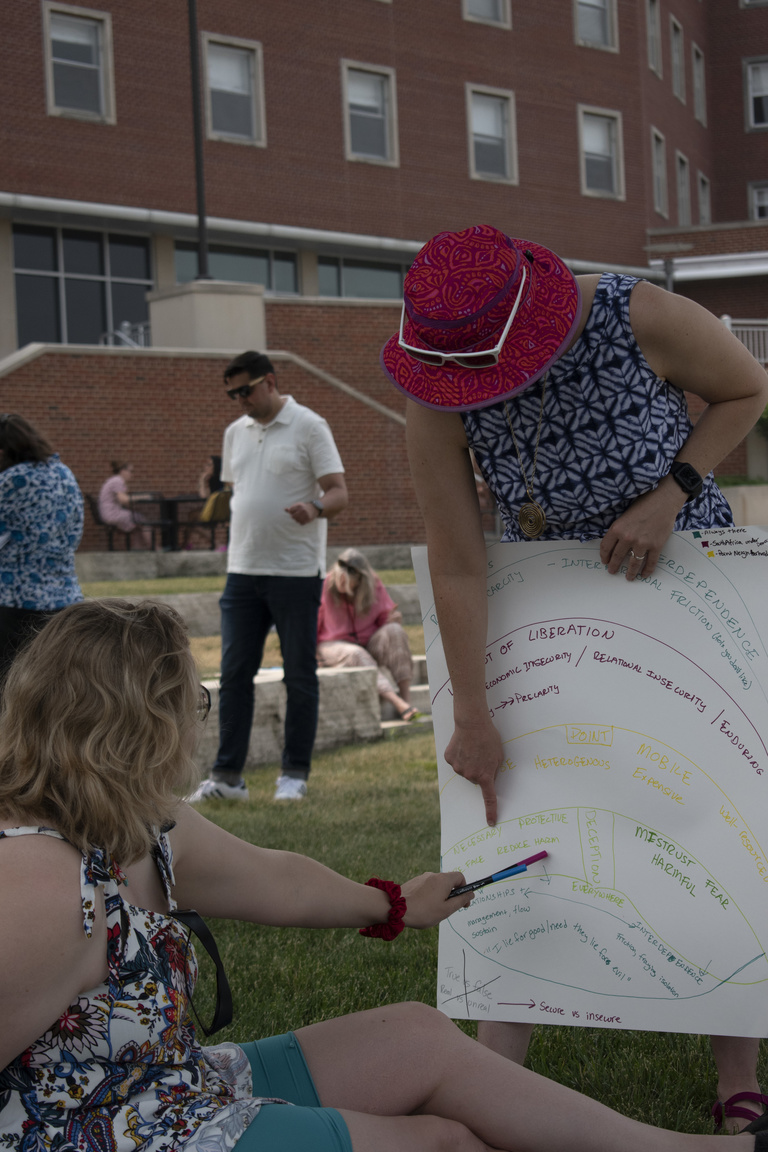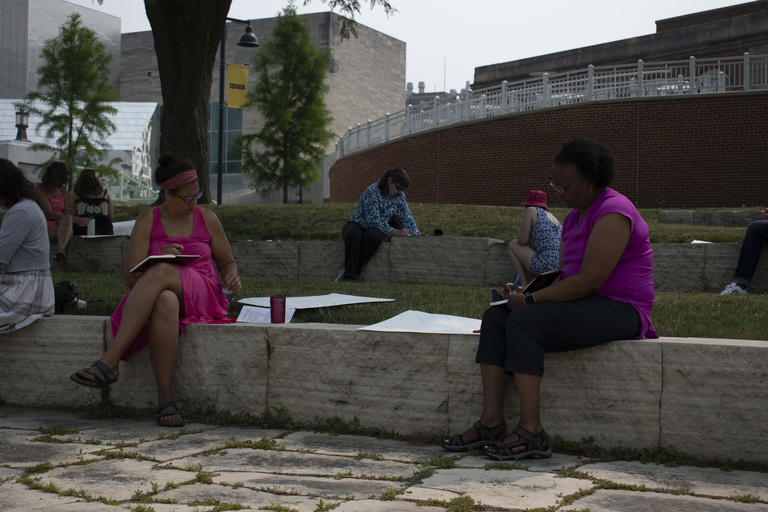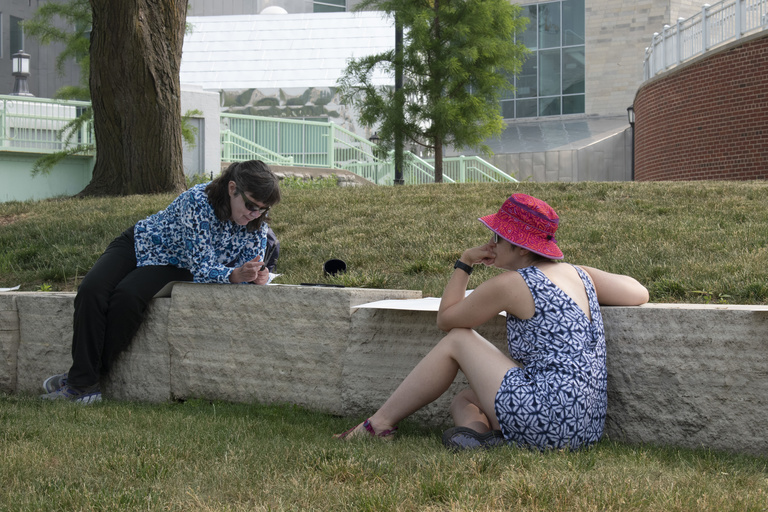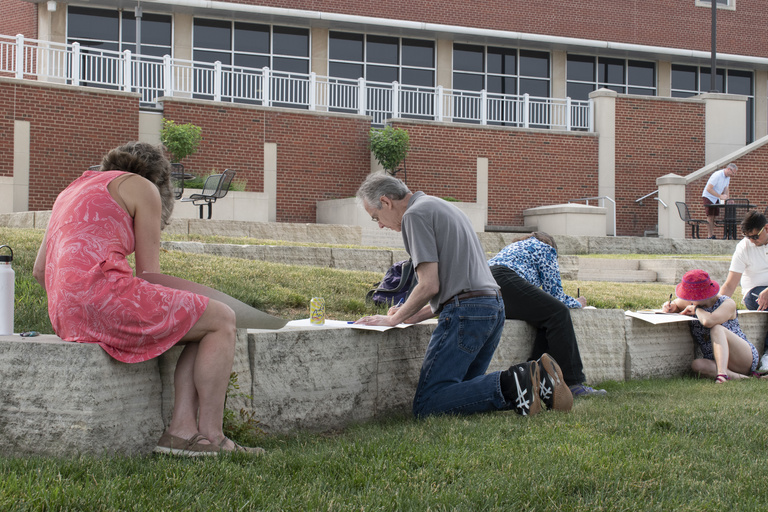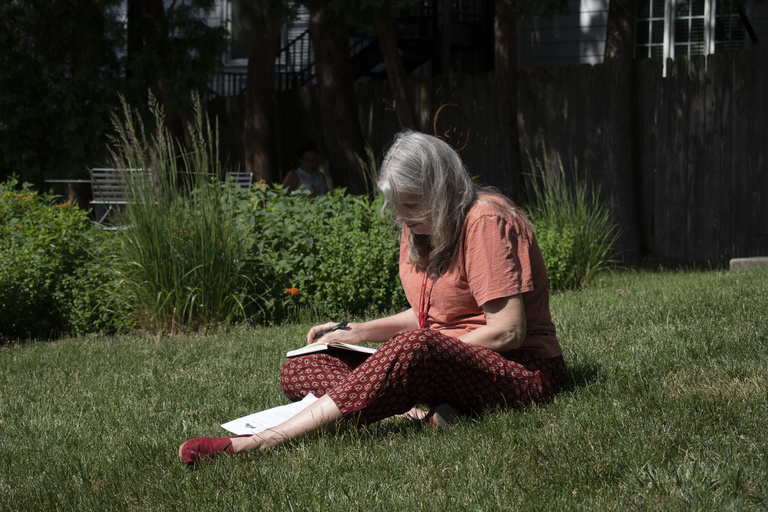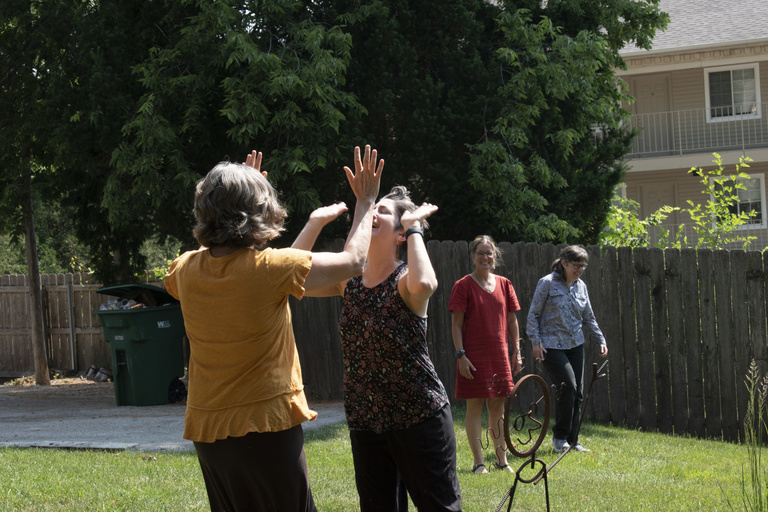Spacer
Enhancing & rekindling research focus
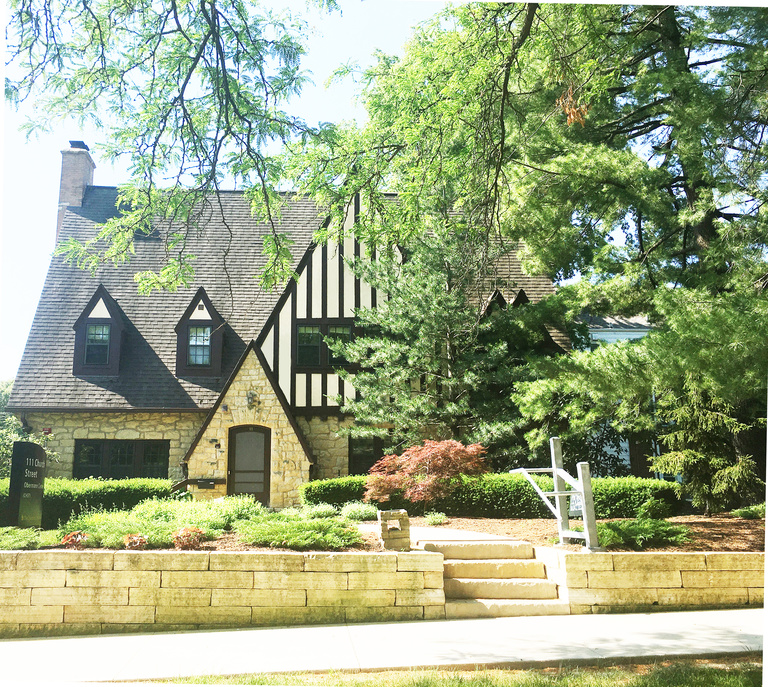
With generous financial support from the Office of the Vice President for Research, the Obermann Center offered the Obermann Center Writing & Research Workshop from June 12 to 16, 2023. At this weeklong event, participants had the opportunity to begin summer by deeply engaging a work-in-progress with the support of individualized feedback, workshops, and time to write in solitude and in community at the Obermann Center for Advanced Studies (111 Church St). Participants received a small honorarium of $200.
In every field, researchers turn to writing to convey ideas, solve problems, figure out arguments, disseminate findings, and more. The Obermann Writing & Research Workshop offered a combination of structured and open-ended activities, including evidence-based approaches to deepening arguments, practices to enhance (or rekindle) research focus, and time to write and reflect in an array of settings (indoors and outdoors). In addition, each participant had the chance to ask for feedback in a workshop setting.
The workshop was co-directed by two faculty members whose scholarship and teaching focus on the craft of research and writing across the disciplines: Naomi Greyser, Associate Professor of American Studies, English, and Gender, Women’s, and Sexuality Studies at the University of Iowa and Aimee Carrillo Rowe, Professor of Communication Studies at California State University, Northridge. Their approach complements researchers’ expertise in their own fields, drawing on over a decade of working closely with academic writers across institutions.
The 14 UI faculty members who participated in this program are as follows: Elana Buch (Anthropology), Isabel Darcy (Mathematics), Frank Durham (Journalism & Mass Communication), Megan Gogerty (Theatre Arts), Viridiana Hernandez Fernandez (History), Brady G'Sell (GWSS), Ashley Howard (History), Anita Jung (Art & Art History), Maria Belen Hernando Llorens (Teaching & Learning), Milad Mohebali (Higher Ed and Student Affairs), Tom Oates (American Studies), Daria Fisher Page (Law), Yasmine Ramadan (French & Italian), and Sherry Watt (Higher Education Program).
Workshop Co-Directors
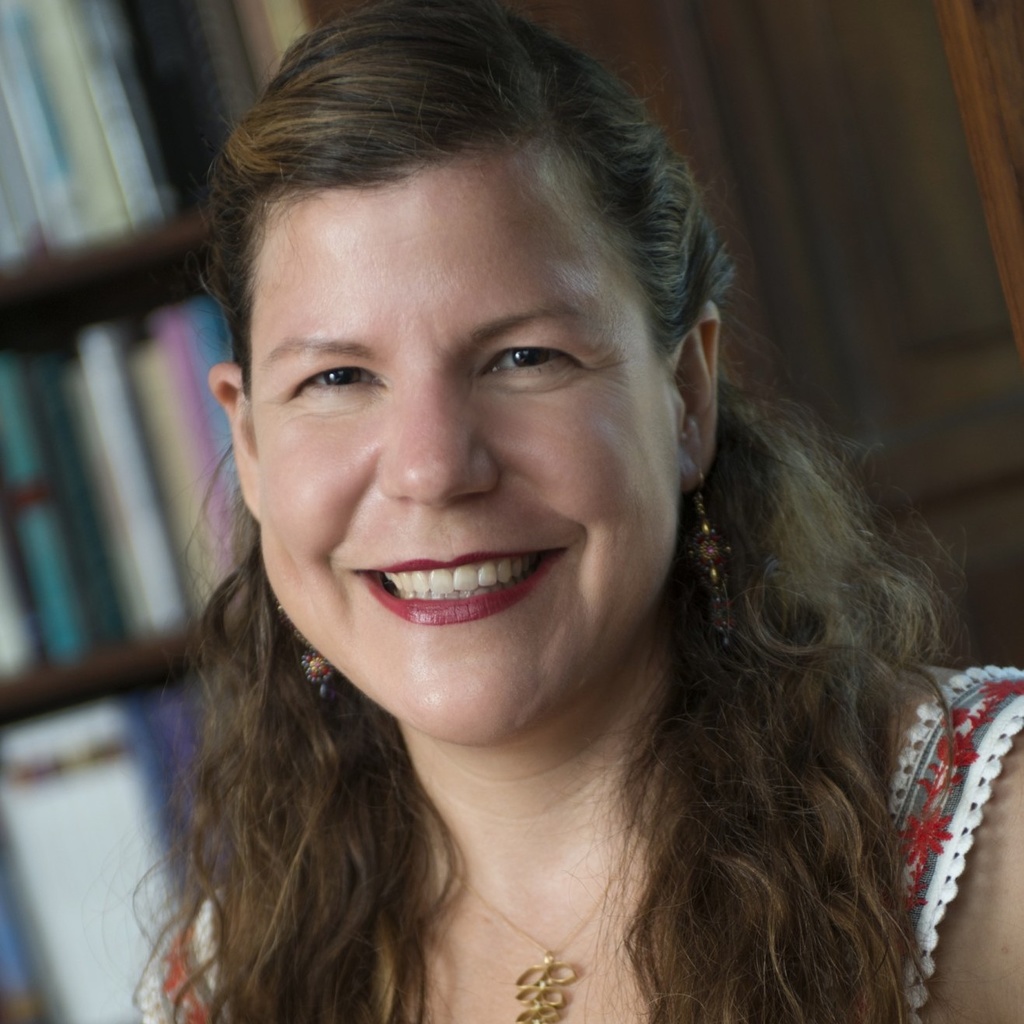
Naomi Greyser
Naomi Greyser is associate professor of American studies, English, and gender, women’s & sexuality studies at the University of Iowa, as well as director of POROI, Iowa’s Project on Rhetoric of Inquiry. Greyser is the author of On Sympathetic Grounds: Race, Gender, and Affective Geographies in Nineteenth-Century North America (Oxford University Press, 2017). She is also senior head writing coach at the National Center for Faculty Development and Diversity, where she has supported academics with their research and writing for over a decade. Greyser is currently at work on two interlinked projects on writer’s block. The first is a monograph on writing, race, and gender at the university. The second is a volume of justice-based rhetorical practices for academics to work and play with.
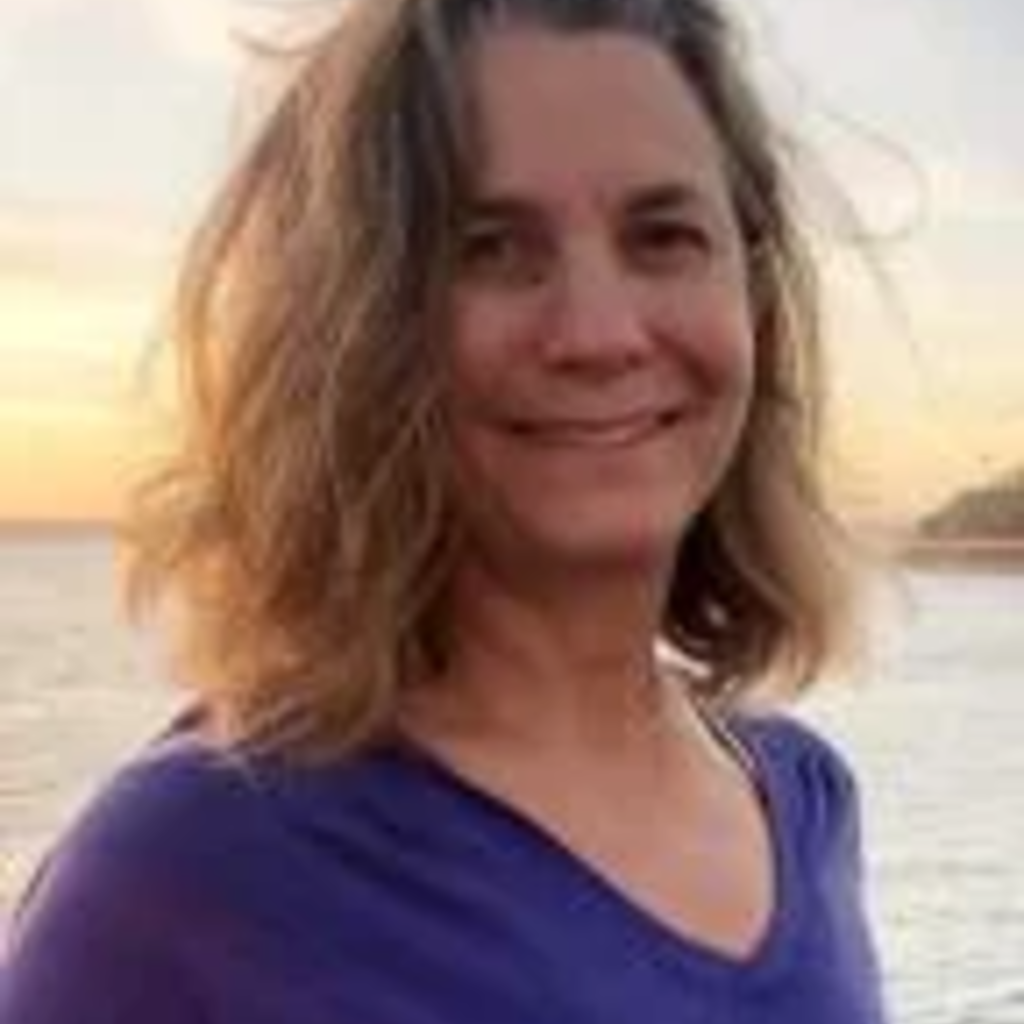
Aimee Carillo Rowe
Aimee Carrillo Rowe is a feminist theorist, culture critic and memoirist. She is professor and chair of Communication Studies at California State University, Northridge and the author of Power Lines: On the Subject of Feminist Alliances (Duke University Press, 2008), Answer the Call: Virtual Migration in Indian Call Centers (University of Minnesota Press, 2013), and a study of healing, sovereignty, and Indigeneity in performance communities, entitled Queer Xicana: Performing the Sacred (in progress). Aimee also earned an M.F.A. from UC Riverside, Palm Desert and is currently completing a book entitled, The Third Point: A Queer Family Memoir.
